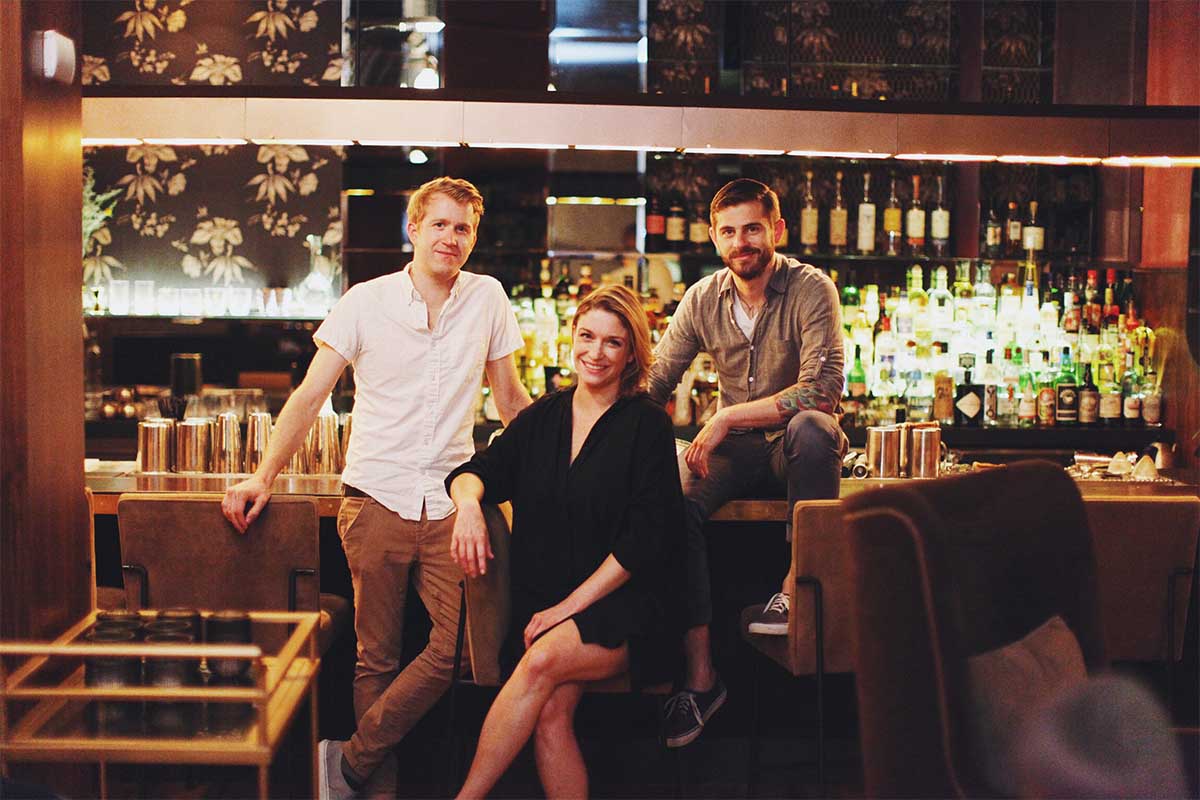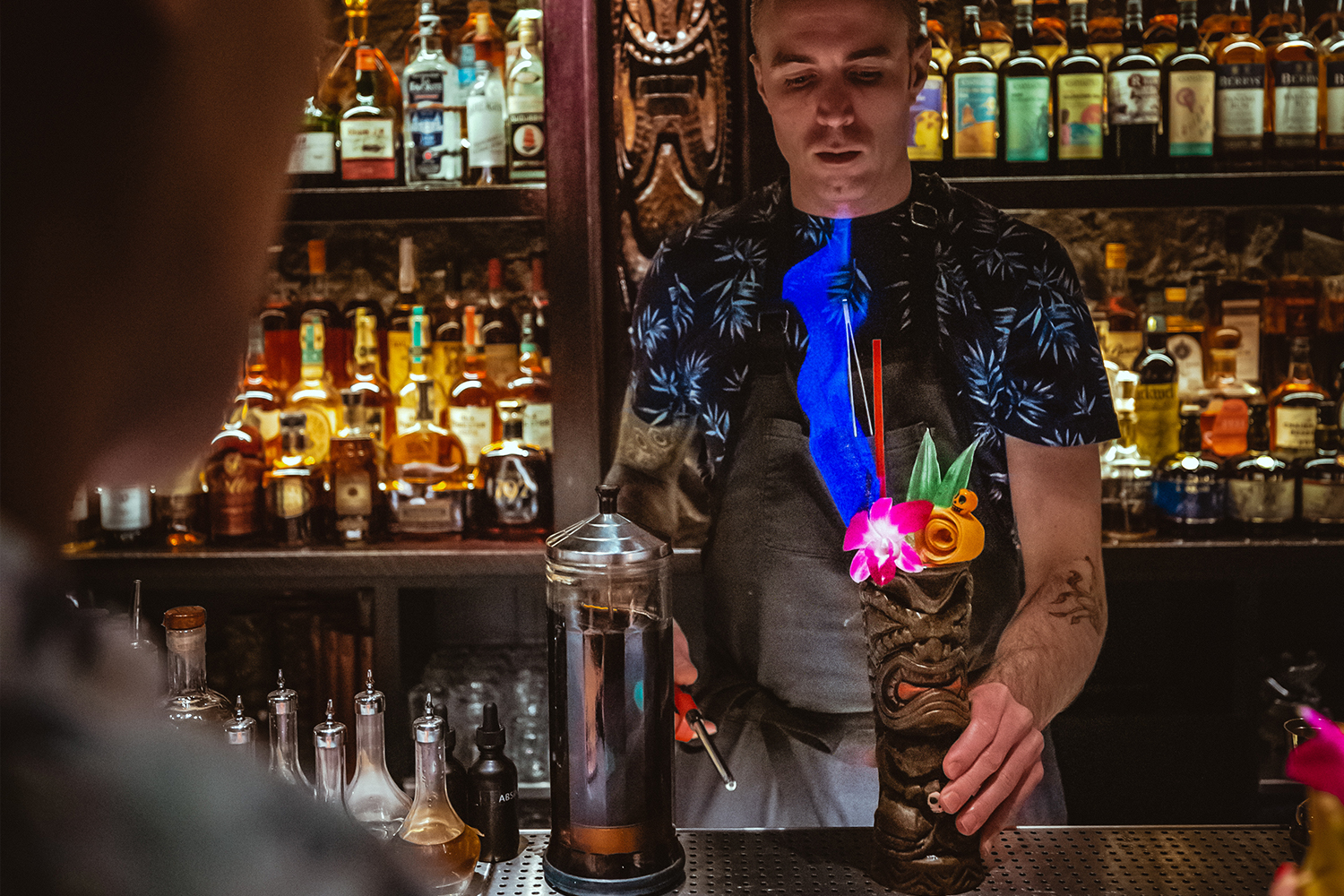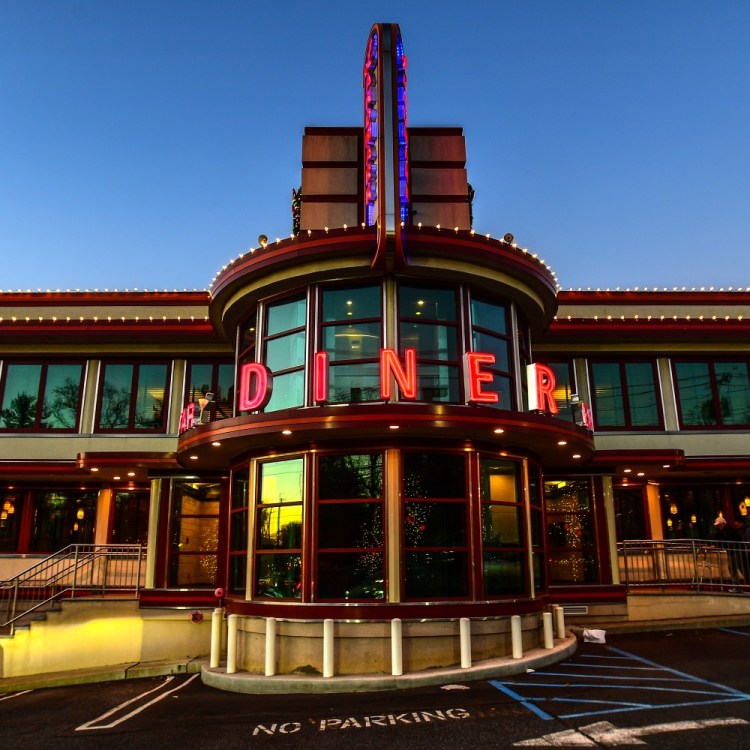“The margins in the hospitality industry are historically very narrow,” explains Death & Company owner Dave Kaplan. “And with the pandemic, those margins went from existing to non-existing.”
No kidding. Before COVID-19, Death & Company was already considered an outlier in the drinks community, if purely for its outsized ambition. Starting in 2006, D&C has grown from a single cocktail venue to something close to a national brand; there are now multiple D&Cs, a line of cocktails books, an online store and a consultancy agency, among other ventures that go beyond serving drinks.
Fueling part of that growth was an unusual partnership with SeedInvest. In 2018, Death & Co became the first hospitality brand on the crowdfunding platform — they raised over $2 million, which helped fund some of the brand’s initial expansion.
Talking to the team behind Death and Co (well, really, Gin & Luck Hospitality Group, which will be the larger umbrella for all of the brand’s new endeavors), you hear repeatedly about how much the team wanted to continue expanding even before the pandemic. But COVID has a way of reprioritizing future goals, so things in the pipeline for two, three or four years down the road have been pushed up.
Now the company is headed back to SeedInvest to launch what’s called a Reg A+ raise, which is essentially a mini-IPO open to accredited and non-accredited investors. Basically, it opens up the startup world to everyday investors in a way that wasn’t even possible a few years ago.
What the fundraise (which will aim for a $4-$6 million infusion) will allow, in Kaplan’s mind, is a chance to expand while involving its customers (monetarily!) in the entire process. That expansion into new areas will bring in additional income. That new money, in turn, will allow the company to craft better benefits and retirement plans for its employees.
“We want to grow and be able to self-fund, and not always have to raise money or find new paths to capital,” says Kaplan. “If we’re diversified enough, we can still grow and become profitable, reinvest and become who we want to be. That’s novel in our space, and it shouldn’t be. It’s strange that so many other industries are ahead of hospitality on this, because we’re considered such a progressive industry.”
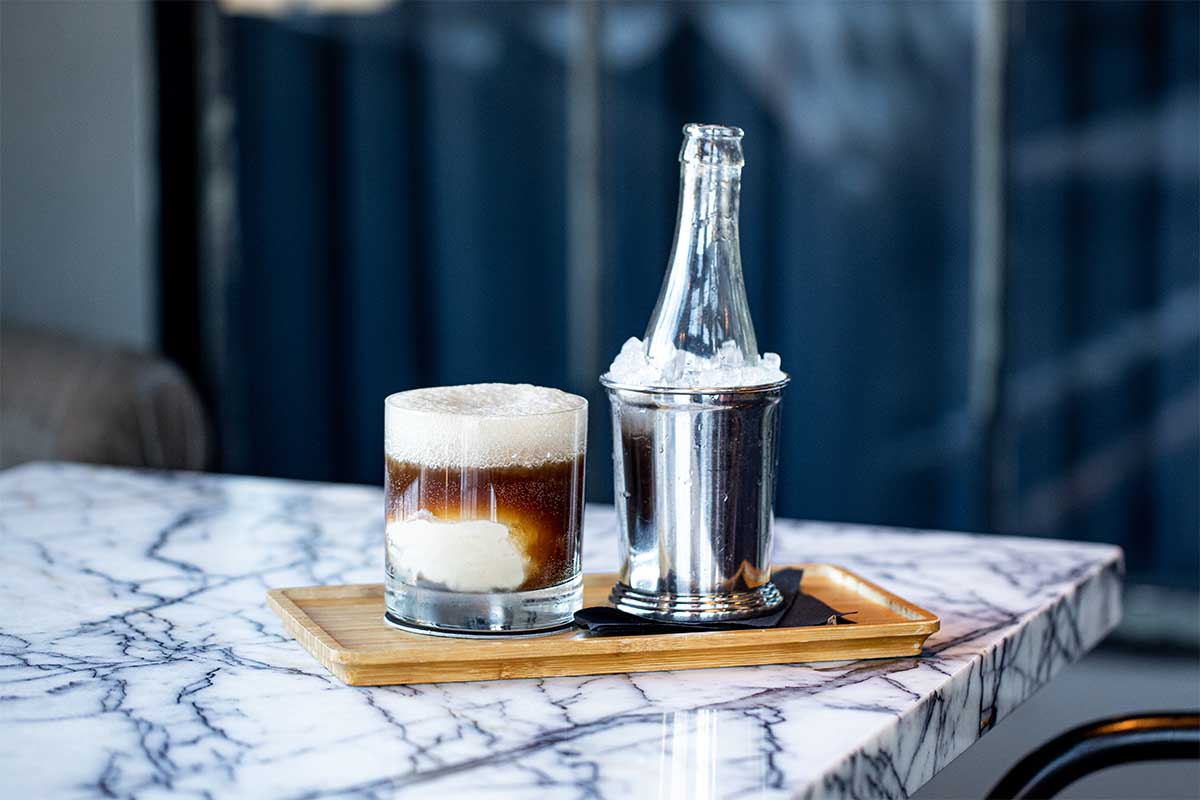
But that’s just numbers. In some ways Death & Co’s plans provide a potential roadmap to other bars who want to survive in difficult environments (see: 2020). But it also shows that there is a very narrow opportunity to repeat these steps. D&C is leveraging years of experience and a well-known name; your local can’t compete.
Here’s D&C’s five-step approach:
- Release a line of ready-to-drink cocktails nationwide
- Expand their online, paywalled education platform for consumers and bar pros
- Publish more cocktail books, including the upcoming Death & Co, Welcome Home
- Continue to build the online Death and Company Market by introducing new product categories (cutting boards, aprons, knives, soap, etc.) and bringing more out-of-house brands on board
- And most importantly, strengthen their position as a consultancy to other bars, restaurants and cafes, while also taking on a joint venture with Gravitas Development Group to “seek out, purchase, develop, operate and manage hotel properties inclusive of their food and beverage outlets.”
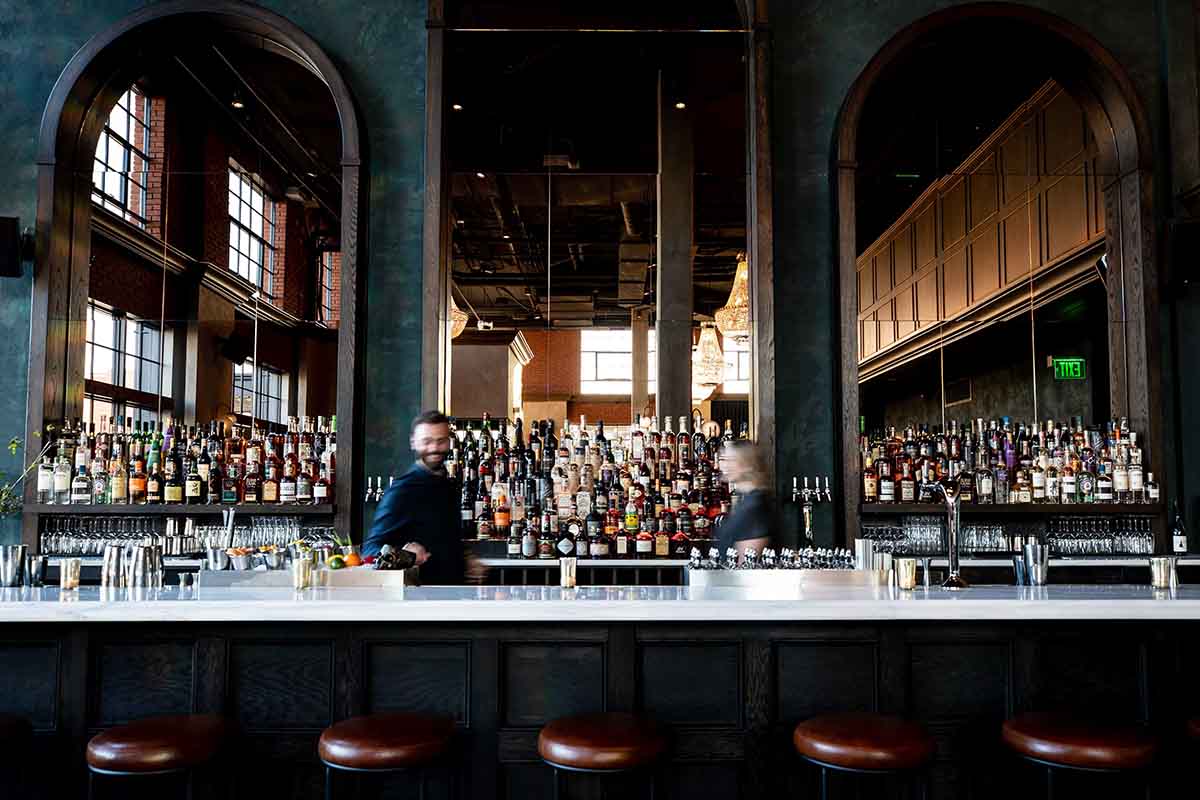
That’s a lot to digest at first. “In today’s landscape, to be successful in hospitality, you have to be more than a brick-and-mortar venue,” says D&C co-owner Alex Day. “You have to be nimble and go beyond ‘typical.”
“Funny enough, after our last fundraise, I think the key to us was having focus,” adds co-owner Devon Tarby. “I don’t see this taking away from our core focus.” In particular, she notes the importance of their proprietors group, which has helped shape, open and manage around 40 different properties over the past eight years. And that includes venues within hotels, which is where the new collaboration with Gravitas makes more sense.
Obviously, very few bars could replicate this entire model. And D&C is entering some of this space hurriedly — RTDs (note: I tried two of theirs in a final testing phase before their upcoming launch this spring; they’re good and very easy drinking, although they admittedly lack the complexity of the bar’s in-house cocktails) and online education platforms for beverages are still in the nascent stage, but there are players in those areas already. And there is a chance for the brand itself to become diluted, even if what is called “Death & Company” is only a small part of the larger plan.
But Kaplan doesn’t see it that way. “We’re still offering a beverage-forward experience, just through a multitude of experiences,” he says. And given their forward-thinking track record — besides the crowdfunding, the company has been a leader in the community by offering benefits and mental health resources (and they’re currently undergoing an extensive audit that should make them a more diverse business as well) — we can see these ambitious plans working out.
The rest of the bar industry? Take notes, but you might have to carve out your own path.
Join America's Fastest Growing Spirits Newsletter THE SPILL. Unlock all the reviews, recipes and revelry — and get 15% off award-winning La Tierra de Acre Mezcal.
